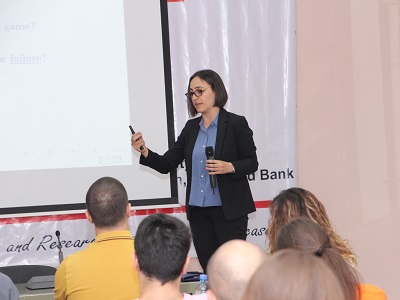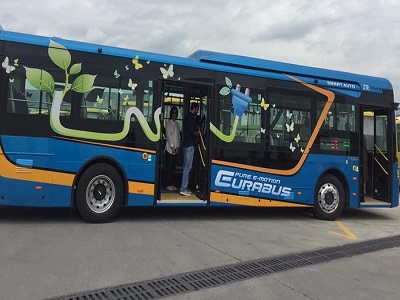To stop, or not to stop? ISET alumnus explains non-monetary incentives
- Details

‘There are two types of people’ is the common opening for a number of jokes and idioms, but as research carried out by ISET alumnus Ala Avoyan (now of the University of Indiana) shows, there is some truth to this old adage.
Two different types of character were revealed over the course of study, which investigated ‘history dependent stopping’ factors in scenarios without any financial components. Using hundreds of chess games, Ala discovered that repeated losses or victories are indicators of whether a participant will continue to play; enjoyment from the next game, therefore, is derived from the result of the match preceding it. The incentive to stop or not is the variable which differentiates the two types.
Electric buses and cities – lessons learned from around the world
- Details

On May 3, the US-based World Resource Initiative (WRI) published ‘How to Enable Electric Bus Adoption In Cities Worldwide’, which examines the process of adopting e-buses in sixteen case study cities. Tbilisi City Hall took the first couple of steps necessary to introduce the first electric bus in 2018 and is expected to scale up the number to 200 from 2020. Thus, this study could serve as guidance of what to look out for when changing existing bus fleets to e-buses. To smoothly adopt electric buses and make the process successful and sustainable, the report identifies four stages:
• Stage 0 to 1 centers around the reason why stakeholders wish to adopt e-buses in the first place. City officials and bus operators need to focus on whether e-bus adoption can match the city’s environmental targets. Before moving on to the next stage, stakeholders also need to ensure that there is infrastructure capacity that can handle the adjustment. This includes investigating whether the existing bus fleet hinders the introduction of e-busses, road conditions, electricity generation, and transmission and distribution ability.










